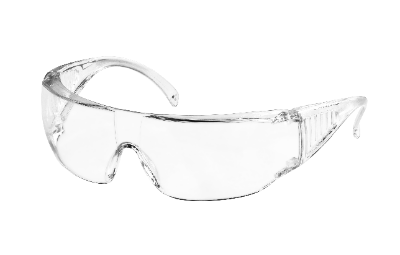What Are Safety Glasses?
 Safety glasses are protective eyewear used to protect the eyes from foreign objects flying into the eyes while working in agriculture, construction sites, etc.
Safety glasses are protective eyewear used to protect the eyes from foreign objects flying into the eyes while working in agriculture, construction sites, etc.
They are used in a wide variety of fields, but in the agricultural field, they are useful when using brush cutters.
Uses of Safety Glasses
Safety glasses are used to protect the eyes from foreign objects during work. They are used in various industries.
For example, they are used in the agricultural industry when using weedeaters. When using a weedeater, pebbles and grass can fly in various directions.
If these fly into the eyes, they can be very dangerous, so safety glasses are necessary.
Characteristics of Safety Glasses
Advantages
One of the advantages of safety glasses is that they provide eye protection. Most products are lightweight and can be worn simply to protect the eyes.
The cost of safety glasses is also low, as they can be purchased for as little as a few dollars. Another advantage is that there is a wide range of products available, depending on the intended use.
Disadvantages
One of the disadvantages of safety glasses is that they may get in the way when working. Especially during the hot summer months, the temperature rises to such an extent that care must be taken, including heat stroke. Many people find safety glasses to protect their eyes to be cumbersome.
In addition, many types of safety glasses are worn over the ears and may fall out when the wearer is slumped over.
Types of Safety Glasses
There are various types of safety glasses, but the three most common types are “for agriculture,” “for chemical testing,” and “for construction.”
1. For Agricultural Use
Safety glasses for agriculture are often equipped with UV-cut functions and lightweight. Agricultural work under the hot sun is highly exposed to ultraviolet rays, and by wearing safety glasses, UV rays to the eyes can be cut. In addition, lightening the weight of what you wear on your body reduces the strain on your body and allows you to proceed with your work.
Safety glasses for agriculture are often made with flexible polycarbonate lenses, considering the possibility of dropping them outside.
2. For Chemical Testing
Safety glasses for chemical testing are often made from materials that are compatible with a variety of reagents. In addition, when used for chemical testing, they are designed to be used by both men and women in schools, etc., so that they can be used regardless of gender.
Since chemicals may be splashed around in chemical tests, the structure is designed to cover not only the eyes but also the surrounding area. Since some chemicals may cause sores on the skin when they come into contact with the skin, many safety glasses are designed to cover the area around the eyes.
3. Industrial Use
Safety glasses for industrial use can protect the eyes from flying sparks when welding, etc., or from flying stones during construction.
Because they are often used in a variety of work environments, safety glasses with high impact resistance and chemical resistance are highly valued.
How to Select Safety Glasses
The following are some of the factors to consider when selecting safety glasses.
1. Intended Use
The characteristics required for safety glasses depend on how the glasses are used. For example, if you are using a mower in a field with many pebbles, you will need impact-resistant safety glasses to protect your eyes from flying stones.
In addition, since it is likely that work will be done outside for long periods of time, safety glasses with UV-cut characteristics are preferred.
2. Materials
Although it has a little to do with the intended use, it is also necessary to check the material of the safety glasses. Safety glasses are made of polycarbonate lenses. Polycarbonate lenses are light, flexible, and impact resistant. They can be used in normal chemical testing.
However, it is important to make sure that the material is suitable for the situation in which it will be used, such as when special chemicals are used, before purchasing.